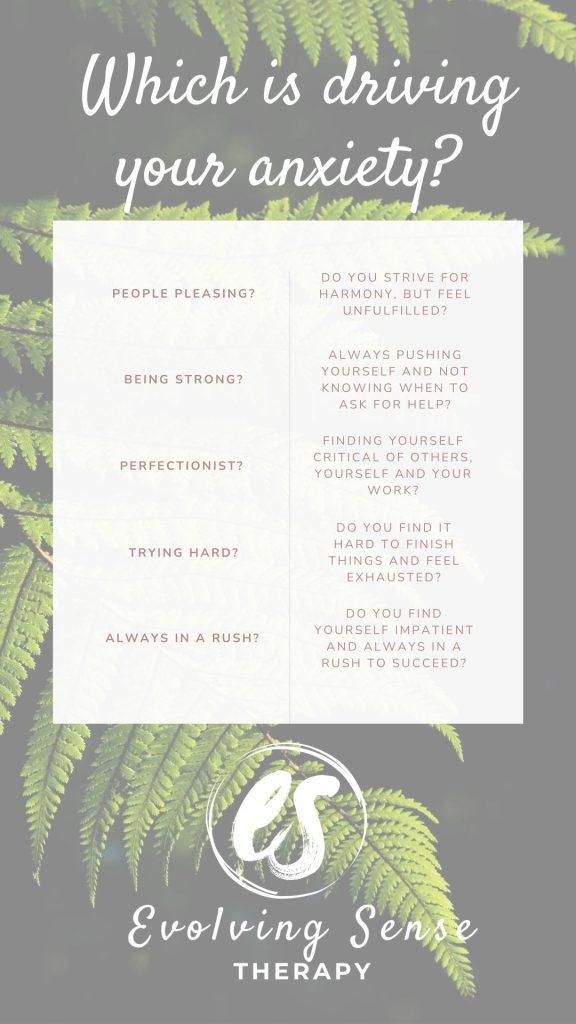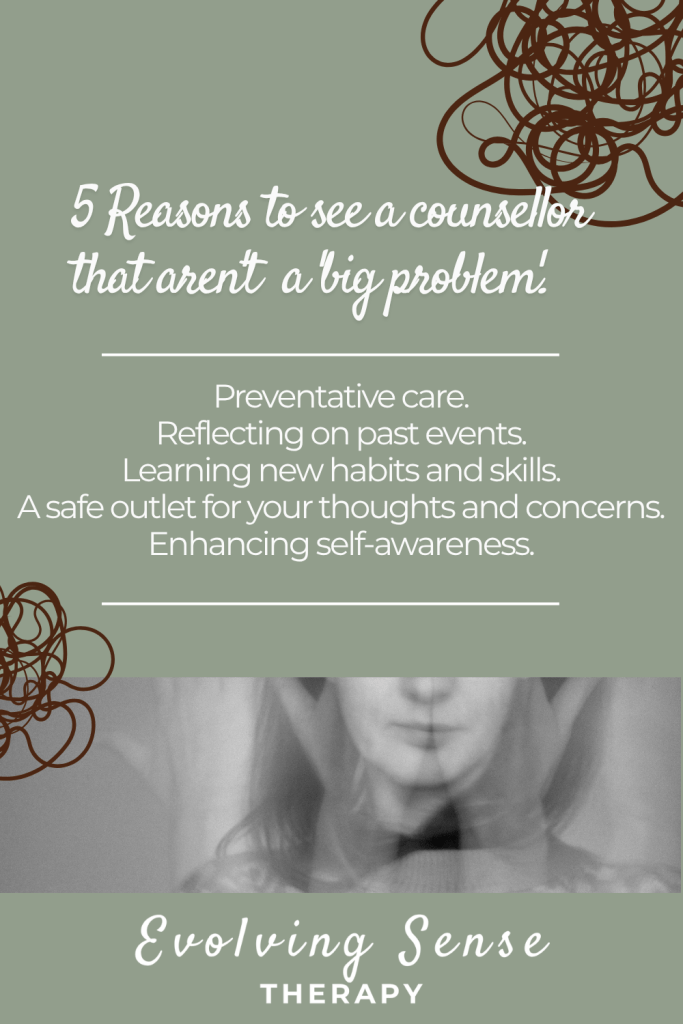
Feeling not good enough? 5 Reasons why that might be.
5 Reasons You Might Feel “Not Good Enough”.
Ever feel like you’re a fraud, or that your successes are just pure luck, or that you are not supposed be happy with your new outfit? The feeling of “not good enough” is a feeling more people are familiar with than you might think. Research suggests that 57.4% of the adults with ‘very-bad’ self rated health reported high levels of anxiety and over 4 in 10 adults reported low levels of happiness compared to those with ‘very good health’.
 This blog post outlines 5 reasons why you might not feel good enough and will give you some key take aways at the end. If you would like to know what you can do about it, you could skip straight to the end. Or, read on to learn why this might be happening to you.
This blog post outlines 5 reasons why you might not feel good enough and will give you some key take aways at the end. If you would like to know what you can do about it, you could skip straight to the end. Or, read on to learn why this might be happening to you.
Reason #1: The Impostor Phenomenon

You feel like a fraud, convinced that your successes are due to luck rather than skill. You fear your luck might run out and your belief as an imposter will be evidently true, even with clear evidence of your achievements.
Impostor syndrome affects people from all backgrounds, and research suggests it is even more prevalent for women. Estimates suggest its prevalence ranges from 9% to as high as 82%.
What you could do: Try to separate feelings from facts. Your feelings are not a true measure of the reality and not necessarily a good measure about your capabilities.
Reason #2: The Perfectionism Trap

In another blog I introduced perfectionism as one of the ‘driver’, a mechanism of familiar behaviour we can rely on in periods of high stress. You can read the blog here. Perfectionism makes you set excessively high standards for yourself, and anything less than that is seen as a complete failure.
Often we set these bars so high, it is impossible to reach it. This all-or-nothing thinking creates a relentless and all consuming cycle of anxiety and self-criticism.
A 2015 study showed that people with impostor syndrome were more likely to struggle with perfectionism and have a lack of confidence in their ability to complete tasks.
What you could do: Learn to reframe mistakes as learning opportunities instead of personal failures.
Reason #3: Echoes from the past
 Critical parents, bullying, or any emotional distress in childhood can create a belief that you are unworthy of love or success. These past belief become negative internal narratives that play on a loop.
Critical parents, bullying, or any emotional distress in childhood can create a belief that you are unworthy of love or success. These past belief become negative internal narratives that play on a loop.
A 2018 study in the Journal of Personality and Social Psychology found that a warm, responsive childhood environment was a significant predictor of higher self-esteem in adulthood.
What you could do: Recognise these stories are not facts, and they don’t have to define your future.
Reason #4: The Social Media Highlight Reel
Do you find yourself grabbing your phone in those empty moments? Or do you find yourself looking up to the clock and realise hours have gone by?
Endless scrolling looking at carefully curated images of others’ seemingly perfect lives, will result in comparing your life against theirs. This “upward comparison” distorts your perception of reality and normality and can foster feelings of inadequacy, not good enough and not worth of it.
A 2019 study of teenagers found that the more they used Instagram, the less satisfied they were with their bodies. We can only surmise that we will feel the same effect as adults and will find ourselves in the comparison trap.
What you could do: Curate your feed to include content that uplifts you, rather than undermines your confidence.
Reason #5: You think the thoughts and feelings are You.
 Don’t Let These Feelings Define You!
Don’t Let These Feelings Define You!
Understanding the root causes is the first step toward change. Your worth isn’t defined by external validation, perfection, or past trauma.
Key Takeaways:
- Acknowledge the voice of your Inner Critic, but realise that is not You.
- Challenge your perfectionistic standards. Be kind to yourself when things are slightly off the mark.
- Heal past echoes by addressing their impact with the help of a professional.
- Limit social media and unhealthy comparisons.
- Practice self-compassion and focus on your strengths.
Feeling overwhelmed? Talking to a therapist can help.
Save this blog for later to remind yourself of these key insights.
If you find yourself often anxious, burnt out, swamped or drowning in overwhelming negative thoughts about yourself, counselling can be a vitally important resource.
It does take courage to take the first step – remember, seeking help is not a sign of weakness but rather one of strength. And the first step is often the hardest. You are not alone on this journey either. We will be there together.
If you need further guidance on starting your counselling journey, I would be happy to help you where I can. You can reach out to me here or book a session here.
I am looking forward to meeting you.
Eefje
“Mirrors can twist our view, but they can’t change our worth. Let’s support each other in seeing through the distortion! 🤝💔”
#MentalHealthMatters #Empathy

Eefje
Counsellor
Join me on my musings about developing a greater understanding of ourselves and how we relate to each other and the world and how therapy can support us.
Featured posts
About Eefje
Eefje is a fully qualified counsellor with TA and a psychotherapist in training. She is also training to become a guide to support people who like to write in a trauma informed way. Read more about that here.
Copyright 2025 © Evolving Sense Therapy












